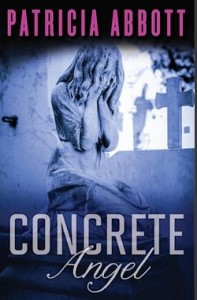by Patricia Abbott , @Pattinaseabbott
I wrote approximately 100 stories and a handful of poems before it seemed time to try my hand at a novel. And it turned out to be so terribly hard that I wrote another 25 stories while I dithered about just how to do it. How do you write an novel? I read books, articles, blogs, listened to podcasts, trying to find my way inside this world.
I listened to people in my writing groups and in classes when they told me how this or that story was ripe for development into a novel.
Yes, I said, but truthfully I never really saw the potential novel in most of those stories. They seemed complete, finished. I had said all I wanted to say in about 5000 words. By then, I’d exhausted the subject and was bored with the characters. Ready to move on. Those characters just had this one thing to do and they did it with only a few other people looking on. Those stories all took place over a short period of time–or at least the best ones did.Continue reading




